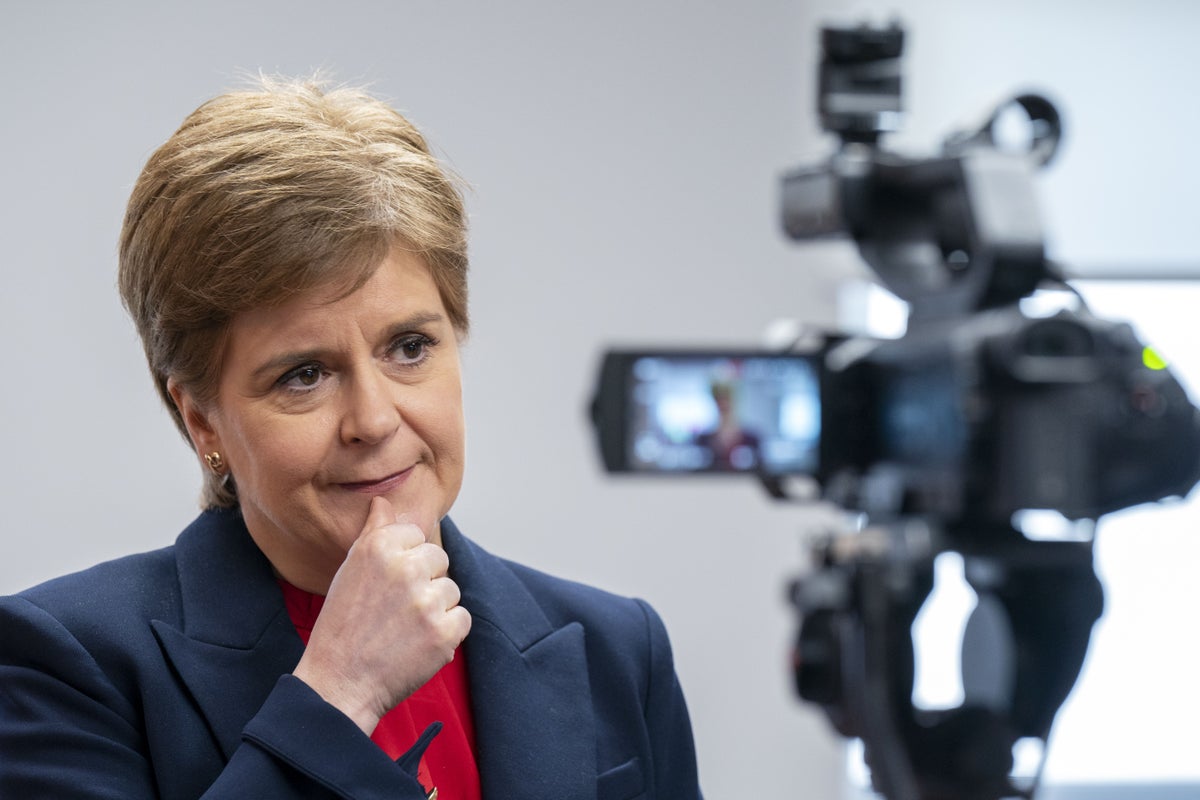
The Scottish parliament cannot hold a second referendum on independence without consent from Westminster, the Supreme Court has ruled in a fresh blow to Nicola Sturgeon’s hopes of holding a vote.
The UK’s highest court ruled that Holyrood cannot legislate on a vote, agreeing with the UK government that constitutional matters are reserved for the UK parliament.
The case was brought by SNP leader Ms Sturgeon, Scotland’s first minister, who had set out plans to hold a second ballot – dubbed indyref2 – on 19 October 2023.
But Supreme Court president Lord Reed said on Wednesday that judges unanimously agreed that the independence vote bill proposed by the SNP “does relate” to reserved matters.
“The Scottish parliament does not have the power to legislate for a referendum on Scottish independence,” he stated.
In response, Ms Sturgeon said she now wants to make the 2024 general election a “de facto referendum” on independence, announcing plans for a special SNP conference in the new year to discuss the plan.
Ms Sturgeon she had “respect for the rule of law” and would accept the Supreme Court decision – saying the route to Scottish independence must be “lawful and democratic”.
But she insisted that a “mandate” for independence was “quite simply undeniable” because of a pro-independence majority at Holyrood.
The SNP leader claimed that the court decision on a referendum bill did not decide on whether there was “any democratic means” by which the independence question could be settled.
Rishi Sunak has said now is not the time for “an unnecessary, divisive constitutional referendum” on Scottish independence.
The prime minister called the idea of holding indyref2 anytime soon as a “quite frankly barmy idea” during the Tory party’s August leadership contest.
Mr Sunak’s Scottish secretary Alister Jack said ministers “note and respect the unanimous ruling”, adding that people in Scotland want government to focus “on the issues that matter most to them”.
The verdict means the Scottish government’s top law officer, the Lord Advocate Dorothy Bain, will not now be able to clear a referendum bill for passage through the Scottish parliament.
During a hearing in October, Ms Bain had said resolving the legality of the proposed referendum bill was a “critically important question” which had been “festering” since the early days of devolution.
The UK government’s representative, Sir James Eadie, had argued the bill “squarely and directly” relates to a reserved matter. He also argued that the bill was at too early a stage for the court to even issue a ruling on.
But Lord Reed said the Supreme Court had decided that “it does have the power to decide” now on the question of whether a referendum could be held without Westminster consent.
Lord Reed said the court did not accept SNP arguments based on the “right to self-determination” in international law.
He said a Canadian case, which concerned Quebec, held that self-determination under international law only exists in situations “of former colonies, or where a people is oppressed ... or where a definable group is denied meaningful access to government”.
The SNP case had in part relied on a potential independence vote being “advisory”.
But the Supreme Court concluded that the impact of the bill could not be “confined” to simply the holding of a referendum. “A lawfully-held referendum is not merely an exercise in public consultation,” said Lord Reed.

SNP MP Angus MacNeil said the court ruling was why he wanted the party to debate a “Plan B” at its conference, arguing that elections could now be used to force a vote on independence.
“Scotland is effectively a hostage in the union, but the way out is of course the ballot box,” said Mr MacNeil.
Alex Salmond, Ms Sturgeon’s predecessor, has also encouraged the SNP leader to use the general election as a mandate for indyref2.
The Alba Party leader accused Ms Sturgeon of leading the independence movement down a “complete blind alley” with the “bad gamble” of the court case – and called for “a civic campaign of protest and action”.
Scottish Labour leader Anas Sarwar said the SNP should now “focus on the problems facing our country”. He said there is “not a majority for a referendum or independence” in Scotland, but there is a “majority for change”.
Recent polls show Scottish voters evenly split on the independence question, with a YouGov October survey showing 49 in favour and 51 per cent against.
Plaid Cymru’s Westminster leader Liz Saville Roberts MP said the “exposes the fundamentally undemocratic nature of Westminster rule”.
Calling for new powers, the Welsh nationalist leader added: “It is time for the UK government to guarantee the right to self-determination for all the devolved nations.”







